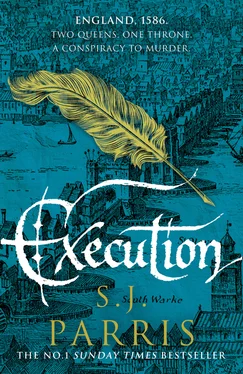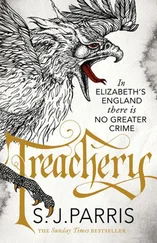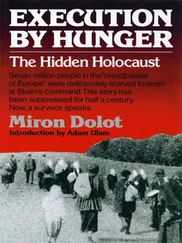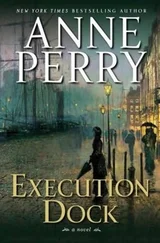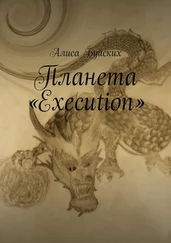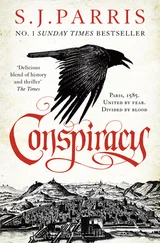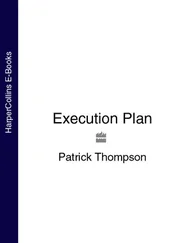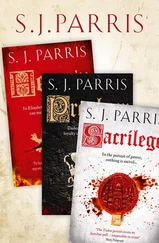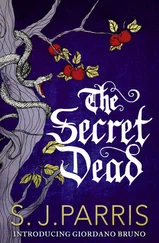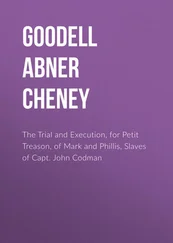He did not trouble to disguise his anger. I had the sense that Robin Poole’s antipathy to Anthony Babington had put down roots long before the death of his sister.
‘And the others?’ I prompted.
‘Let’s see. Father John Ballard. Thirty-seven, ordained priest, goes about in the guise of a veteran soldier. Calls himself Captain Fortescue. His faith verges on fanatical. If he’d been born in your country, he’d have volunteered to join the Inquisition, and enjoyed it.’
‘I have met the type,’ I said, with feeling.
‘Ballard dreams of ushering in the reign of a second Bloody Mary, turning the skies over England dark with the smoke of burning Protestants. If anyone could kill a young girl in cold blood, it would be him. Or more likely his faithful dog Jack Savage, who is justly named – he used to be a professional fighter. Then there’s Chidiock Tichborne, Babington’s closest friend – another rich boy who only wants England’s return to Rome so he can get his father’s estate back. Same with Thomas Salisbury – he’s the one Ballard has riding about the country persuading Catholic nobles to let Spanish troops land on their coastline.’ He gave a sceptical laugh. ‘They really think Philip of Spain is going to send his Armada when they snap their fingers. They are all boys playing at holy war.’
‘But they trust you?’
‘I believe they do. I’m from a Catholic family, and Savage vouched for me to Ballard. They think I share their grievances.’
‘But I thought your father worked for Walsingham?’
‘He did.’ A brief pause. ‘He was an informer.’
‘I see. Did the Catholics know?’
‘Well. There’s the question.’ His voice grew tight. ‘My father drowned ten years ago. Fell from the riverbank on the way home one night, they said. Assumed he was drunk. But my father knew how to hold his drink, so …’ He lifted a shoulder, inviting me to draw my own conclusion. ‘I was twenty-two, Clara fourteen, both our mothers dead. Walsingham took her into his house, and paid for me to study the law, so I could monitor my fellow students for him. Now Clara’s gone too, for the same reasons. And I let it happen.’
‘You can’t blame yourself,’ I said, hearing the emptiness of the words before they left my mouth.
‘Not really for you to say,’ he replied, though without rancour.
We crossed the rest of the way in silence as the crowd funnelled through the archway of the Great Stone Gate on the south bank. Poole raised his eyes as we emerged from the shadow and I followed his gaze to the sightless remains of heads on spikes high above. Crows perched on ledges nearby, shreds of matter in their beaks; I looked quickly away.
‘I will see Babington and his fellows up there, whatever the cost,’ he said through his teeth as the traffic eased and we turned right to follow the road along the Bank Side.
SEVEN Chapter Seven Chapter Eight Chapter Nine Chapter Ten Chapter Eleven Part Two Chapter Twelve Chapter Thirteen Chapter Fourteen Chapter Fifteen Chapter Sixteen Chapter Seventeen Chapter Eighteen Chapter Nineteen Chapter Twenty Chapter Twenty-One Chapter Twenty-Two Chapter Twenty-Three Chapter Twenty-Four Chapter Twenty-Five Chapter Twenty-Six Epilogue Keep Reading … About the Author Also by S. J. Parris About the Publisher
I remembered, in an instant, how the first thing that hit you about Southwark was the smell. To be more accurate, the collision of smells, all of them fierce enough to make your eyes water and your throat burn. The heavy scent of hops from the breweries fought with vile stinks from the tanneries and the dyers; these in turn mixed with the human odours of the gong-men’s carts, and the sharp, animal musk of the bull and bear rings as we passed the church of St Mary Overy and the walled gardens of Winchester House. Beyond the bull ring, the famous Bankside Stews lined the road facing the river, with their own ripe scents behind closed doors. According to ancient laws, most of these inns and licensed brothels were painted white, their colourful signs affixed above the doors with images that announced their names to those who could not read: The Boar’s Head, The Horseshoe, The Rose, The Barge, The Half Moon, The White Hart, The Olyphant, The Unicorn. Many were fine old houses with gates wide enough for coaches, and gardens with ponds and orchards stretching out to the rear. But they were separated by narrow alleys running with refuse and ordure, and when Poole turned the horse down one of these to follow it south, away from the river, I pulled the kerchief tighter around my mouth and nose and fought back the bile rising in my throat.
In the streets behind the bank, tenements crowded on one another as if they had been thrown together by drunks from whatever lay to hand: scrofulous plaster flaking from the walls, sheets of oilcloth nailed over windows in place of glass, roofs with missing tiles and greasy boards propping up lean-to shelters barely fit to keep a dog in. Despite the early hour, men in shirtsleeves stumbled along roads rutted by cartwheels, or pissed against the doorposts of alehouses under fading and splintered signs, regarding us with unfocused eyes that made me think of the girl in the stocks. It was impossible to tell if they were on their way home after a long night, or beginning again for a new day. Silent, dirty children with sores around their mouths crouched in the alleys, watching with wary, sunken eyes. Tired-looking women in low bodices and smudged face paint jutted their hips and pouted at us as we passed; one, a spotted scarf around her black hair, made a comical honking noise after us and asked, in a foreign accent, if we handsome gentlemen were hungry for a little gooseflesh this fine morning? When she stepped too close to the horse, causing it to rear its head back, Poole snapped at her to fuck herself. ‘Where would be the profit in that?’ she fired back, quick as blinking, with a merry laugh, and I found myself smiling. Poole muttered something about damned Winchester geese, and I recalled the nickname given to the women who worked in this lawless borough, where any pleasure or entertainment might be acquired, at a price.
Poole turned east and south again, through streets lined with half-derelict buildings, until the tenements gave way to open fields and we followed a mossy wall of crumbling brick on our left. When we reached an unmarked gate, he brought the horse to a halt and sprang down; I followed, and he handed me the reins.
‘This is the place.’ He slapped his palm against the slats. The gate looked as if it could be torn away with one hand, though the lock held fast as the wood juddered. ‘The Cross Bones. They took this from the old keeper.’ He held up a key and fitted it to the lock. ‘Bring the horse in with you, or he’ll be gone in two minutes round here. Nothing but thieves and whores, this whole stinking borough. Let’s see where she was found.’
I followed him through the gap into an uneven patch of waste ground. There were few upright stones; those that remained listed at angles, edges worn away by time and weather, their inscriptions erased to a smooth blank. Here and there rotting wooden posts stood over other mounds, but for the most part you would hardly know the place was given over to the dead, save for its air of neglect and the crows perching with watchful eyes in the trees.
Poole looked about him, scanning the perimeter wall. It stood some ten feet high, though in places the brick was so old and worn it appeared that it would crumble to the touch. To our right, the wall was bordered by a row of cottages in poor repair. Along the side opposite the gate, a few trees remained inside the boundary, branches snaking along the top of the wall, small green apples budding on the higher reaches. Immediately to our left, on a flat patch of earth, an iron brazier stood, flakes of black ash around its feet. I pulled the kerchief down from my face, reasoning that there was no one to see me here.
Читать дальше
